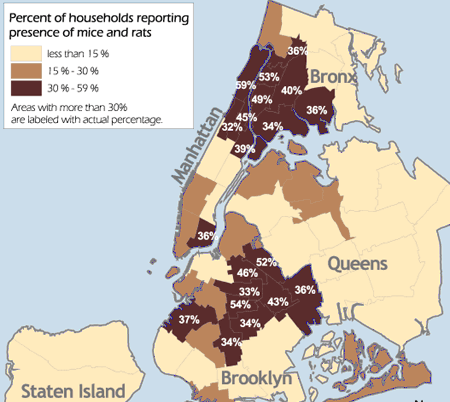Marking time in December 2003
Stop verbing those nouns
Kick me in the shins if I ever write anything as obscure as the following — it’s the abstract for a new book published by IBM, entitled ‘Architecting Portal Solutions’:
This IBM Redbook is focused on architecting and building WebSphere Portal Server-based Dynamic Workplaces. It addresses the needs of SWG Architects, Business Partners, and customers for building skills in architecting solutions by identifying themes that can be applied across multiple SWG Industry Solutions. This includes using e-business infrastructure solutions maps that apply across multiple industries: for example, the On Demand Workplace solution, the e-business integration stack from SWG that provides capabilities for integrating the enterprise based on both business and technology drivers, and the IBM Patterns for e-business from SWG that provide the basis for understanding the best practices for supporting e-business integration. This redbook provides real examples of industry-specific Dynamic Workplace solutions from leading Solution Developers and Systems Integrators working within the IBM on demand strategy. It also includes information on how to use IBM software capabilities to fulfill customer requirements using WebSphere, Lotus, Rational, Tivoli, and Data Management products, how portals are used in various industries, and how this investment can lead a customer towards becoming an e-business on demand.
Collecting Airstream caravans
In this month’s special places piece about the Farnsworth house I mentioned Lord Palumbo, owner of the house from 1968 until a few days ago. A little googling today turned up another mention of him.
Lord Palumbo, the British connoisseur known as a collector of world architecture, harbors two Airstreams in Plano, Ill., at the aesthetically serene Farnsworth House, the 1950 Modernist landmark in steel and glass designed by Mies van der Rohe and later bought by Lord Palumbo. For now, the Airstreams are sitting idle on the estate, one near the visitor’s gate and the other near a garage.

Hellfire and dalmatians
You can get this design printed on a T-shirt, mug or mousepad — it makes a pair with Sally’s drawing.

Crocodiles in space
From a Queensland government media release dated 11 December 2003: Environment Minister Dean Wells today launched a new Environmental Protection Agency website to highlight research involving the tracking by satellite of six large estuarine crocodiles as part of a world-first research project.
![Movement patterns for Harriet, May-June 2003 [EPA website]](images/space_croc-5.jpg)
Mr Wells said the website would carry data from the 10-month trial monitoring an adult male and female crocodile from the Endeavour River near Cooktown and four adult males from the Nesbit River on Cape York Peninsula, to determine their spatial requirements and how they use their habitat.“This is the first time that satellite transmitters have been fitted to estuarine crocodiles,” Mr Wells said.
“Using glue and some minor surgery, the researchers attached the satellite tracking equipment to the large scales of the nuchal shield between the crocodiles’ shoulders.
“This research is designed to provide the QPWS with information that will help manage estuarine crocodiles in Queensland, and across their natural range throughout the Indo-Pacific region.
“Tracking information about the six crocodiles, named Charles, Harriett, Banana, Nesbit, Bob and SuperCroc, is now freely available to the public on the EPA website.
Inappropriate symbols
In an open letter Microsoft Senior Vice President Steven Sinofsky has apologised for his company’s offensive behavoir.
He wasn’t writing about Microsoft bullying its competitors or designing bloated software, but the unintentional oversight of failing to identify, prior to the release of a symbol font included in MS Office, that two swastikas were included in it. With the apology, Microsoft is offering a free tool to find and remove the transgressing font from your computer. More about this, and the complex meanings of the swastika, at typographica and MetaFilter.

I don’t have the offensive Microsoft font, but I’ll happily substitute this swastika from A book of signs by Rudolph Koch. First published in English by the First Edition Club in 1930, with delicious woodcuts by Fritz Kredel, the book was later widely sold in a fine paperback edition by Dover. I bought my copy in London in 1973 — sadly, it has gone missing from my shelves. Koch’s signs have recently been made into a set of fonts by the P22 type foundry.
New York rats
City Councilor Bill Perkins is campaigning against the rodents of New York. He has written a piece in the Gotham Gazette:
They’re in our parks, in our houses, in our subways, and on our streets. I personally have been forced to walk in traffic in order to avoid them. They are out in the open, scampering undisturbed, and growing to phenomenal sizes. Some estimates tell us that there are as many as six rats for every one New Yorker. If that is accurate (and nobody really knows), that means there are close to 44 million rats in New York City. The situation is out of control. Something has to be done. (He goes on to say what he proposes to do).
Elaine Sloan, a member of People for the Ethical Treatment of Animals, sticks up for the rats and urges compassion:
Rats are intelligent, curious and sensitive animals. They’re shy; they’d rather run than confront a potential threat. They’re meticulous about cleaning themselves and take very special care of their young. In so many ways, rats are like dogs, cats, horses, seals and the more popular “poster children” of the animal kingdom.

Disclosure #1: I pinched the map of rat demographics from gothamgazette.com—I reduced and cropped it, and toned down some of the colours. Disclosure #2: There are rats and mice living around our place, probably nesting among the firewood and eating spilled chook food. Our cat brought us a live rat the other night.